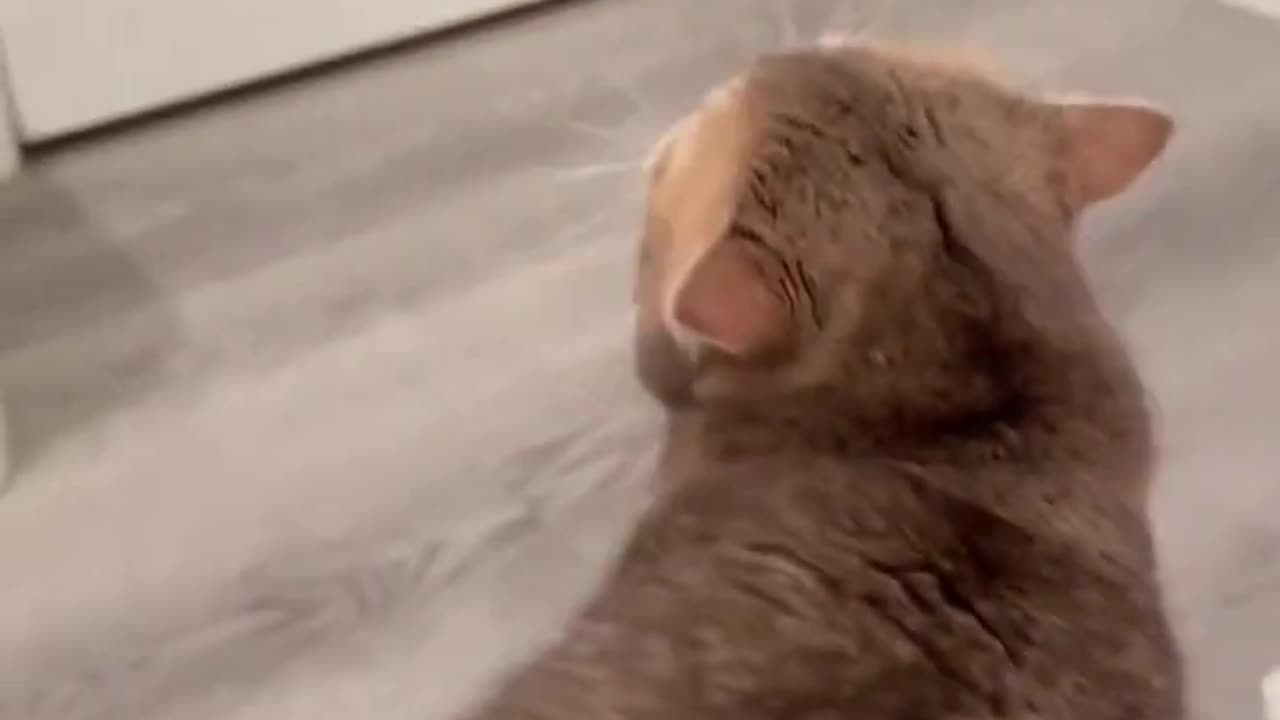Premium Only Content

Cats Sounds
Cats Sounds
Cats produce a variety of sounds to communicate with each other and with humans. Here are some common cat sounds and what they typically mean:
1. **Meowing:**
- **Soft Meows:** Often a greeting or a sign of contentment.
- **Loud and Insistent Meows:** Could indicate hunger, a desire for attention, or a specific need.
- **Chirping or Trilling Meows:** Some cats make these sounds, especially when excited or trying to communicate with birds.
2. **Purring:**
- Generally a sign of contentment, but cats may also purr when stressed or in pain as a self-soothing mechanism.
3. **Hissing and Growling:**
- Defensive sounds, signaling fear, discomfort, or aggression. Cats may make these sounds when feeling threatened.
4. **Yowling:**
- Often associated with mating behavior in unspayed or unneutered cats. It can also indicate distress, pain, or territorial disputes.
5. **Chattering:**
- A sound some cats make when observing birds or other prey animals. It's thought to be a sign of excitement or frustration.
6. **Screaming:**
- A loud, intense vocalization that can occur during fights or territorial disputes. It's usually a sign of extreme distress.
7. **Whining:**
- A high-pitched, persistent sound that may indicate discomfort, illness, or a desire for attention.
8. **Silent Meowing:**
- Some cats open their mouths without making a sound. This can be a playful behavior or an attempt to communicate non-verbally.
9. **Trilling:**
- A melodic sound often made by mother cats to communicate with their kittens. Some adult cats continue to trill as a sign of affection.
10. **Hunting Sounds:**
- Cats may make specific sounds when stalking or hunting. These can include soft chattering or muffled meows.
Understanding these sounds, along with the context and the cat's body language, can help you interpret your cat's communication more effectively. Cats are individuals, and each cat may have its own unique vocalizations. If you notice sudden changes in your cat's vocal behavior, it's advisable to consult with a veterinarian to rule out any underlying health issues.
-
 8:42
8:42
VSOGunChannel
17 hours ago $2.76 earnedDOJ Attacks the Gun Industry & ATF Gets a New Deputy Director
26.2K15 -
 59:47
59:47
Trumpet Daily
22 hours ago $3.93 earnedKilmar Abrego Garcia: Democrat Poster Child and MS-13 Terrorist - Trumpet Daily | Apr. 17, 2025
24.3K4 -
 8:59
8:59
MudandMunitions
19 hours agoThe Savior Equipment Range Bag: Worth the Hype or Overrated?
29.8K1 -
 3:06:16
3:06:16
Price of Reason
18 hours agoDESPERATE Gavin Newsom SUES Trump! Disney Fantastic Four to FLOP? Asmongold Faces BACKLASH Again!!
157K19 -
 3:48:12
3:48:12
Akademiks
11 hours agoDay 2/30. Drake Challenges UMG and calls them Desperate. Ye Backs Drake. Lil Wayne Dont Fw Superbowl
135K17 -
 8:06:34
8:06:34
MyronGainesX
1 day ago $29.95 earnedKarmelo Anthony Merch, Ashley EXPOSES Elon, Filipino President Punishes Vitaly, Iran War Pause!
102K18 -
 2:41:54
2:41:54
TimcastIRL
14 hours agoMASS SHOOTING At Florida State, Anti Trump Rumors ERUPT, MANGIONE EFFECT w/ Maggie Moda| Timcast IRL
263K176 -
 2:36:29
2:36:29
The Illusion of Consensus
1 day agoExploring Holistic Psychiatry with Dr. Aruna Tammala: Nervous System Regulation, Diet, Supplements, Self-love, and Social Connection
53.7K1 -
 2:44:57
2:44:57
Laura Loomer
13 hours agoEP115: Democrats' Pet Muslims Bite Back
82.6K36 -
 18:37
18:37
SantaSurfing
17 hours ago4/17/2025 - Trouble for Tish/Google/Jerome! Trump stops a war!
59.1K22